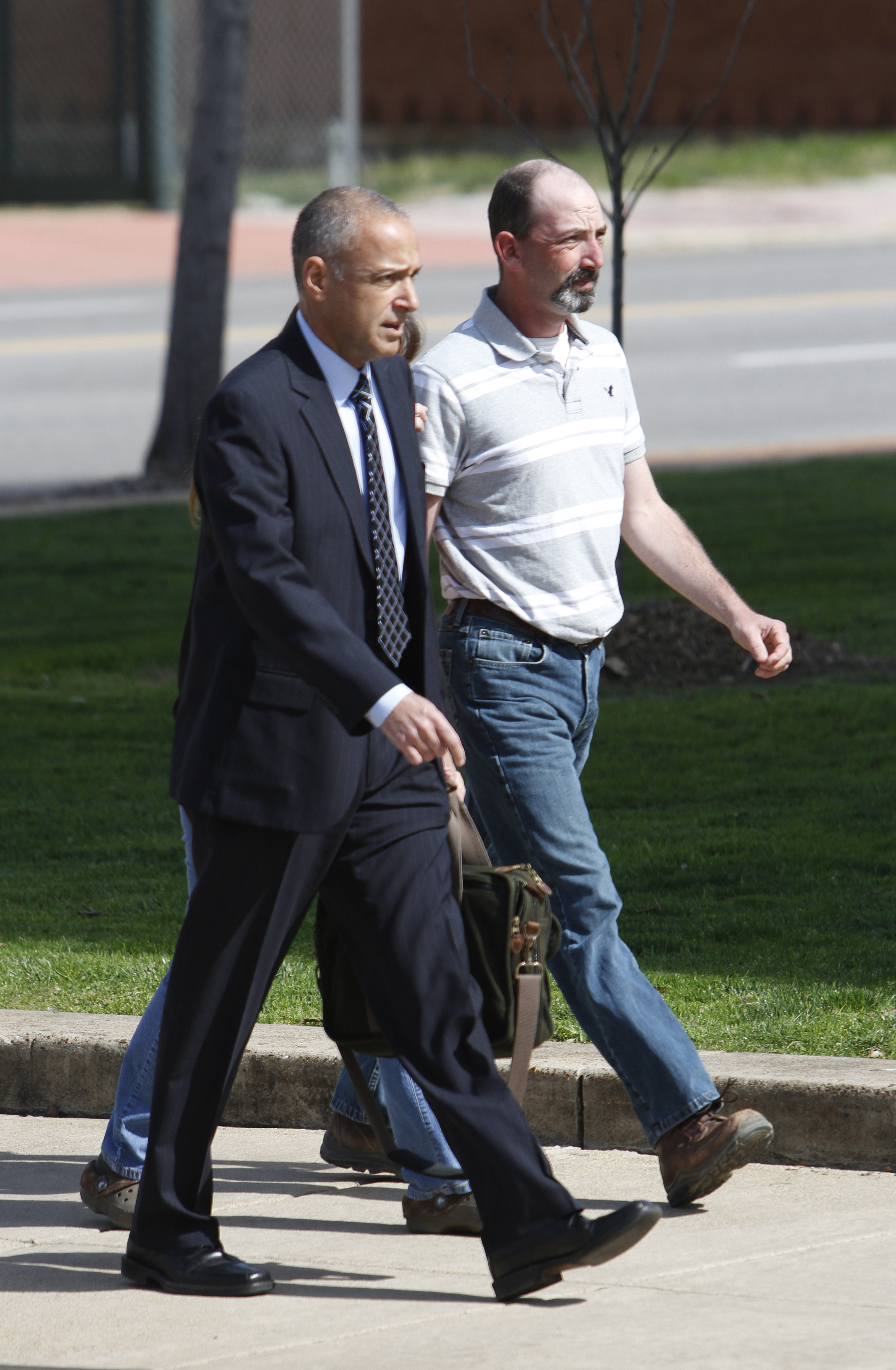Barney Davis lifted wooden blocks, metal chains, bolts and washers in his hands, showing the evidence to the judge.
Davis explained how he and nearly all walking horse trainers use the tools, along with "mustard oil" -- a mix of acid and kerosene or other chemicals -- to tenderize and injure horse hooves. By driving bolts, wrapping chains and slathering corrosive liquids on the animals' hooves, trainers such as Davis can make them lift their legs higher and win fancy ribbons and trophies for the horse owners. The practice eventually can cripple the animals, he told U.S. District Judge Harry "Sandy" Mattice on Monday.
The practice, known as "horse soring," is illegal under the federal Horse Protection Act. Davis, of Lewisburg, Tenn., and three co-defendants have been sentenced after pleading guilty to charges related to abusing horses.
"Every walking horse that enters into a show is sored," Davis said. "They've got to be sored to walk. There ain't no good way to put it but that's how it is."
The allegations of widespread horse abuse astounded Mattice, who likened the abuse to cockfighting. If the practice is as pervasive as Davis described, Mattice said, Congress has promoted disrespect for the law by criminalizing the conduct but not enforcing it.
Mattice enforced it. For the first time in 20 years the crime has been prosecuted in the United States.
He sentenced Davis, 39, to one year in federal prison and a $4,000 fine conspiracy to violate the Horse Protection Act, witness tampering and transporting and entering a sored horse into a walking horse competition.
Police arrested Davis while he was free awaiting trial on the soring charge when investigators video-recorded him helping another trainer "rasp" a horse's hooves to fit it for blocks. He's been in custody since July 2011 and will be eligible for release this July. As part of his plea agreement, he will appear in an educational video to speak out against horse spring.
Horse Soring definition
"Soring is a cruel and abusive practice used to accentuate a horse's gait. It may be accomplished by irritating or blistering a horse's forelegs through the application of chemicals such as mustard oil or the use of mechanical devices. Walking horses are known for possessing a naturally high gait, but in order to be successful in competition their natural gait is often exaggerated. The exaggerated gait can be achieved with proper training and considerable time, however, some horse exhibitors, owners, and trainers have chosen to use improper and inhumane training methods to shorten the time it would take to produce a higher gait without abusive practices." --Dr. Rachel Cezar, Horse Protection National Coordinator, U.S. Department of Agriculture
READ MORE
• Celebration has more walking horse soring violations• Walden at center of Walking Horse Celebration dispute• City's Walden cleared of walking horse abuse• Walking horse trainer suspended for pressure shoeing• How do those stately prancers really walk?• Horse inspections show disparities in industry• New walking horse show canceled for lack of support
His co-defendants -- Christen Altman, 26, of Shelbyville, Tenn., and Jeffery Bradford, 33, of Lewisburg, Tenn. -- each received one year of probation and $1,000 fines. A fourth co-defendant, Paul Blackburn, 35, was sentenced to one year probation and a $1,000 fine in January.
All three co-defendants pleaded guilty to a misdemeanor conspiracy charge. They must write an article for newspaper publication describing the practice and those who participate in it, as well as the long- and short-term damage done to horses through the abuse.
Former U.S. Sen. Joe Tydings of Maryland wrote the Horse Protection Act and submitted it to become law in 1968. The lifelong equestrian and member of the last U.S. Army horse cavalry unit was disgusted when he learned of the practice.
"Anybody that's brought up with horses, to see something like that makes their blood curdle," Tydings said in a phone interview Monday.
Tydings lost re-election to the Senate in 1970, shortly after the bill became law. He went on to work as a private lawyer and only learned decades later that his bill had been funded by only $500,000 annually and had not received a budget increase since the 1970s until last year when funding rose to about $700,000.
Tydings said that wealthy owners of competition walking horses have used political action committee contributions and influence to block increased funding to enforce the act.
"The majority of people who show, work with walking horses, do not get involved in this," he said. "However, the most powerful owners and trainers do."
Tennessee Walking Horse Breeder's and Exhibitor's Association President Marty Irby sent a written statement in response to the horse soring sentencing.
"We, at TWHBEA, are unequivocal in our stance that horse abuse should not be tolerated, and we support rigorous but fair enforcement of the Horse Protection Act," Irby wrote.
The association did not respond directly to Davis' allegations that the practice encompasses a majority of the walking horse industry.
Contact staff writer Todd South at tsouth@timesfreepress.com or 423-757-6347.


